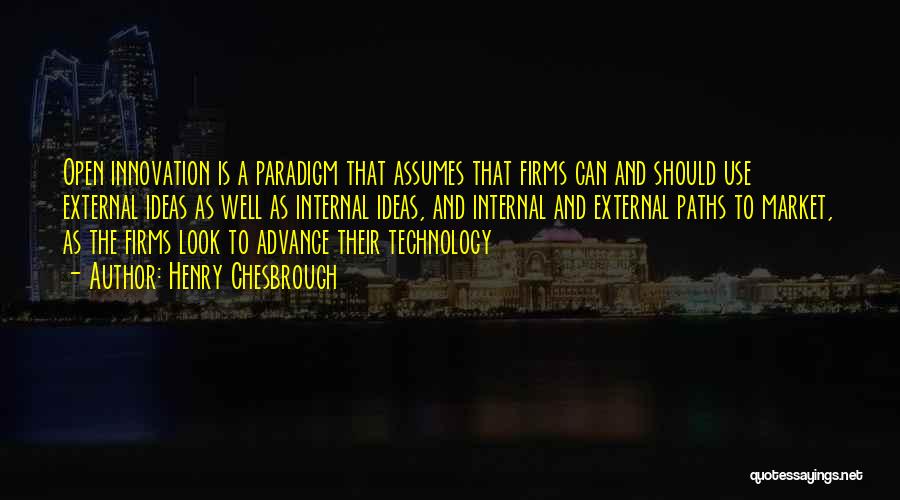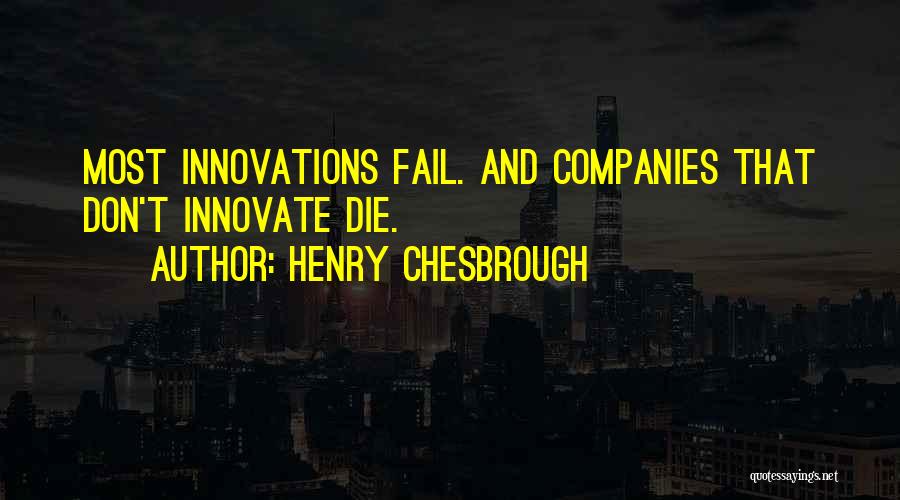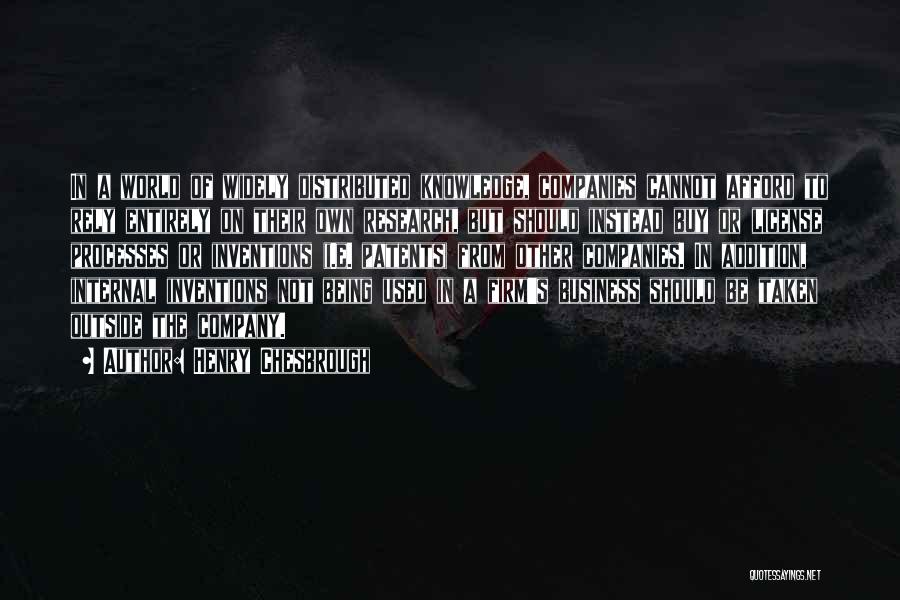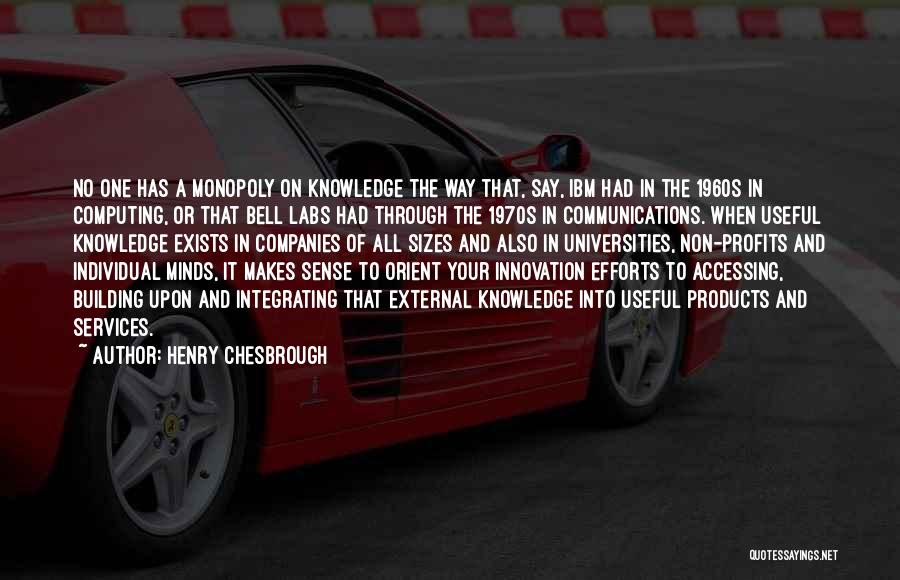Chesbrough Quotes & Sayings
Enjoy reading and share 5 famous quotes about Chesbrough with everyone.
Top Chesbrough Quotes

Open innovation is a paradigm that assumes that firms can and should use external ideas as well as internal ideas, and internal and external paths to market, as the firms look to advance their technology — Henry Chesbrough

Aided by the young George Pullman, who would later make a fortune building railway cars, Chesbrough launched one of the most ambitious engineering projects of the nineteenth century. Building by building, Chicago was lifted by an army of men with jackscrews. As the jackscrews raised the buildings inch by inch, workmen would dig holes under the building foundations and install thick timbers to support them, while masons scrambled to build a new footing under the structure. Sewer lines were inserted beneath buildings with main lines running down the center of streets, which were then buried in landfill that had been dredged out of the Chicago River, raising the entire city almost ten feet on average. Tourists walking around downtown Chicago today regularly marvel at the engineering prowess on display in the city's spectacular skyline; what they don't realize is that the ground beneath their feet is also the product of brilliant engineering. — Steven Johnson

Most innovations fail. And companies that don't innovate die. — Henry Chesbrough

In a world of widely distributed knowledge, companies cannot afford to rely entirely on their own research, but should instead buy or license processes or inventions (i.e. patents) from other companies. In addition, internal inventions not being used in a firm's business should be taken outside the company. — Henry Chesbrough

No one has a monopoly on knowledge the way that, say, IBM had in the 1960s in computing, or that Bell Labs had through the 1970s in communications. When useful knowledge exists in companies of all sizes and also in universities, non-profits and individual minds, it makes sense to orient your innovation efforts to accessing, building upon and integrating that external knowledge into useful products and services. — Henry Chesbrough





